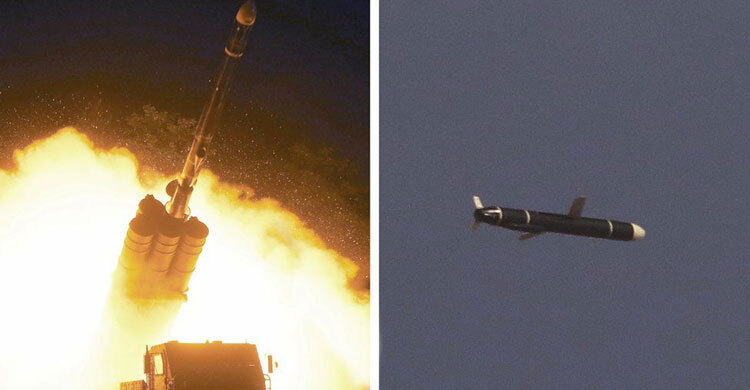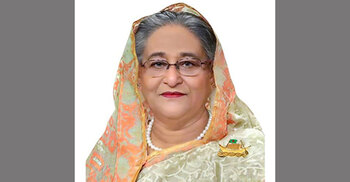North Korea tests new long-range cruise missile

North Korea has tested a new long-range cruise missile capable of hitting much of Japan, state media said on Monday, reports BBC.
Tests staged over the weekend saw missiles travelling as far as 1,500km (930 miles) away, according to KCNA.
However, they do not violate UN Security Council resolutions - they have led to tough sanctions on North Korea in the past.
But it suggests the country is still capable of developing weapons despite food shortages and an economic crisis.
The test was of "strategic significance" as a deterrence measure to guarantee North Korea's security and to "strongly contain" hostile forces' military manoeuvres, KCNA said.
It is the country's first long-range cruise missile that could possibly carry a nuclear warhead, according to North Korea analyst Ankit Panda.
UN Security Council sanctions forbid North Korea from testing ballistic missiles.
The council considers them to be more threatening than cruise missiles because they can carry bigger and more powerful payloads, have a much longer range, and can fly faster.
A ballistic missile is powered by a rocket and follows an arc-like ballistic trajectory, while a cruise missile is powered by a jet engine and flies at a lower height.
Japan's chief cabinet secretary Katsunobu Kato said "Japan has significant concerns" and was working with the US and South Korea to monitor the solution.
The US military has reacted too, saying the test showed North Korea's "continuing focus on developing its military programme and the threats that poses to its neighbours and the international community".
It added that US commitment to defending allies South Korea and Japan "remains ironclad".
Top-level officials from the three countries are due to meet this week to discuss North Korea's denuclearisation process.
South Korea's military is doing an in-depth analysis of the launches with US intelligence authorities, reported news agency Yonhap.
In March, North Korea defied sanctions and tested ballistic missiles, which triggered a strong rebuke from the US, Japan and South Korea.
The latest launch came days after a scaled-down military parade was held in Pyongyang to mark the communist state's 73rd founding anniversary.
It did not display any major ballistic missiles, however it did feature workers in hazmat suits, which may have been a sign that a special force was created to help prevent the spread of Covid-19.
As of 19 August, North Korea had recorded no cases of Covid-19, the World Health Organization (WHO) says - though critics say that is unlikely.
The country shut its borders in January 2020 to stop the spread of the virus, causing trade with its biggest economically China to plummet.
Since then leader Kim Jong-un has acknowledged that the country was facing food shortages, amid reports from aid organisations of a struggling economy and people starving to death.
But Pyongyang's nuclear plans have not been curtailed.
Last month the UN atomic agency said the country appeared to have restarted a reactor which could produce plutonium for nuclear weapons, calling it a "deeply troubling" development.





